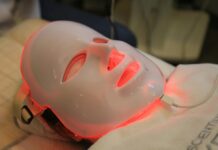- New analysis, published on Disability Pay Gap Day, shows that pay gap has widened by £800 over the last year to £3,800
- Union body warns that gulf in earnings is likely to grow as Covid-19 economic crisis hits
New analysis published by the Wales TUC today (Saturday) shows that disabled workers now earn 18% less than non-disabled workers.
The analysis found that the pay gap for disabled workers has widened to £3,800 per year – an increase of £800 over the last year for someone working a 35-hour week.
This pay gap means that disabled people effectively work for free for the last 60 days (around 8 and a half weeks) of the year and stop getting paid on Sunday 1 November.
The disability pay gap of £3800 is the equivalent of:
- 14 months of the average household expenditure on food and non-alcoholic drinks (£61.90 per week) or
- Almost 11 months of the average expenditure on fuel and power (£79.40 per week) or
- Almost 11 months of what the average household spends on transport (£80.20 per week).
The new analysis reveals that disabled women face the biggest pay gap. They are paid on average 36% (£3.68 an hour, or around £6,700 a year) less than non-disabled men.
Disability employment gap
Not only are disabled people paid less, they are also less likely to be in employment than their non-disabled peers.
Many disabled people who want to work face a range of barriers to accessing employment, from a lack of transport to get to work or inadequate equipment or adjustments made once they are there.
Only around half (53.7%) of disabled people are in work, compared to more than four-fifths (82%) of non-disabled people – a gap of 28 percentage points.
Impact of Covid-19
The Wales TUC warns the disability pay and employment gaps will almost certainly increase again as the economic impact of Covid-19 hits.
Studies show that in previous recessions disabled workers are the first to lose their jobs, and the last to be re-employed.
In addition, disabled workers are more likely to experience negative changes to their terms and conditions.
What is driving the pay and employment gap?
The main factors driving the pay and employment gap for disabled people are:
- Part-time working: A higher proportion of disabled people than non-disabled people work part-time. Part-time jobs, especially in the private sector, are paid less per hour than fulltime jobs.
- Low-paid work: Disabled people are over-represented in lower paid jobs like caring, leisure and other services and sales and customer services, and under-represented in senior and managerial roles.
- Education: Some disabled people leave education earlier than non-disabled people. However, even where disabled and non-disabled people have the same qualifications there is still a big pay gap.
The pay gap is also linked to unlawful discrimination, structural barriers and negative attitudes, says the Wales TUC.
Wales TUC General Secretary Shavanah Taj said: “Disabled women and men face huge and growing discrimination. They are far less likely to have a paid job than their non-disabled peers – and when they do, they earn substantially less.
“And there’s now a very real danger that coronavirus will make the situation even worse. Disabled workers are an easy target for the redundancy list.
“We are risking swathes of disabled people losing their jobs. That will result in significant hardship and will turn back the clock on the decades of slow but steady progress disabled people have made in the labour market.”
Help keep news FREE for our readers
Supporting your local community newspaper/online news outlet is crucial now more than ever. If you believe in independent journalism, then consider making a valuable contribution by making a one-time or monthly donation. We operate in rural areas where providing unbiased news can be challenging. Read More About Supporting The West Wales Chronicle
















![7 Best VPS Providers for Developers [Complete 2025 Guide]](https://xvctqx.infiniteuploads.cloud/2025/01/VPS-218x150.png)








